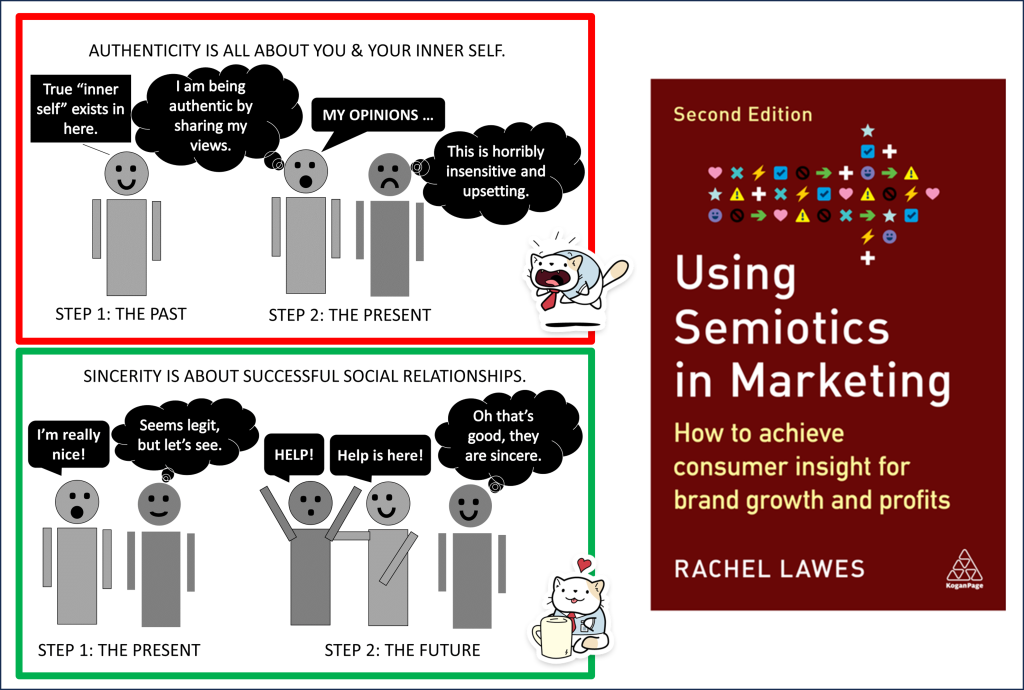SINCERITY BEATS AUTHENTICITY

SINCERITY BEATS AUTHENTICITY
AUTHENTICITY was a #Millennial thing, and they messed it up (sorry, Millennials). Gen Z threw it out and replaced it with SINCERITY. Here’s why. Abridged extracts from the new edition of “Using #Semiotics in #Marketing“.
What went wrong with #authenticity? It was an enjoyable idea, in which a person finds and examines their ‘inner self’, then behaves in a way that matches their feelings. You can see an example of authenticity in Chapter 4 of this book, where I present a photograph of a window display in a women’s clothes shop, which exhorts passers-by to ‘dress the way we feel – for real’. The major drawback of authenticity was that it tended to clash with another metamodern [#GenZ] value, which is that we ought to be considerate of one another’s feelings. Do you know someone who ‘always speaks their mind’, who is ‘straight-talking’ and ‘to the point’? Does this put you in mind of the popular truism we met in Chapter 6, ‘If you can’t handle me at my worst, you don’t deserve me at my best?’ Too much authenticity risks becoming a problem for other people.
Sincerity is a newer alternative, built on different ideas. In this model, people and brands commonly say things that are amiable, and this potentially reflects well on them as well as being better for the recipients of their remarks. The recipient decides whether the speaker seems sincere, a decision which is ultimately a prediction. ‘I assess this person as sincere; I predict that their future behaviour will match the words I’m hearing today’. The big advantage of #sincerity is that it is kinder and more in line with contemporary Western values. Compared to authenticity, it is much easier for those around us to get along with, and less demanding of their patience and goodwill. The disadvantage is that sincerity is a rather fragile state. It is an expression of #trust (‘I choose to believe that this person or organization is sincere’) but also constantly awaits disconfirmation. One big failure or let-down of behaviour will be interpreted as finally having revealed the real inner self, and sincerity is nowhere to be found.
Here are the key takeaways for #brands:
– Relax your grip on authenticity and instead concentrate on becoming sincere.
– To assess someone as sincere is to place your trust in that person. Brands like being trusted so it is in their interests to learn and display sincerity.
– Sincerity is a kind of promise about a person’s or organization’s future behaviour, so you need to be consistent and keep delivering to justify people’s trust.
People urgently need sincerity, but why? It thrives in the lives of your customers because people have real needs in areas such as:
– Safety. For example, digital culture can be very threatening, but it is our home now.
– A sincere effort to actively build a better world and future.
– Sincere relationships and communications which reward trust.
#culture #kindness #mrx #consumerinsights “Using Semiotics in Marketing” is available worldwide.
© 2021 Lawes Consulting. All rights reserved.
Website By the Scruff

0 Comments